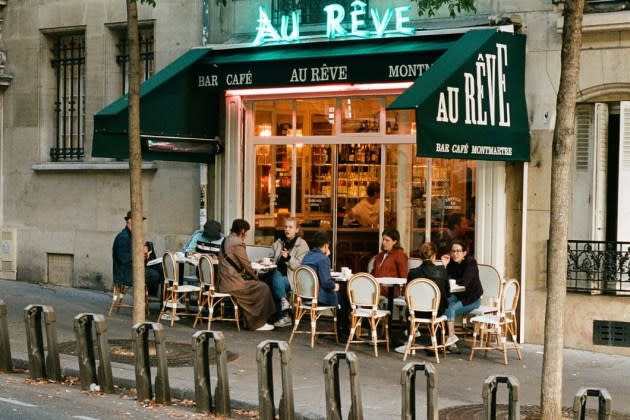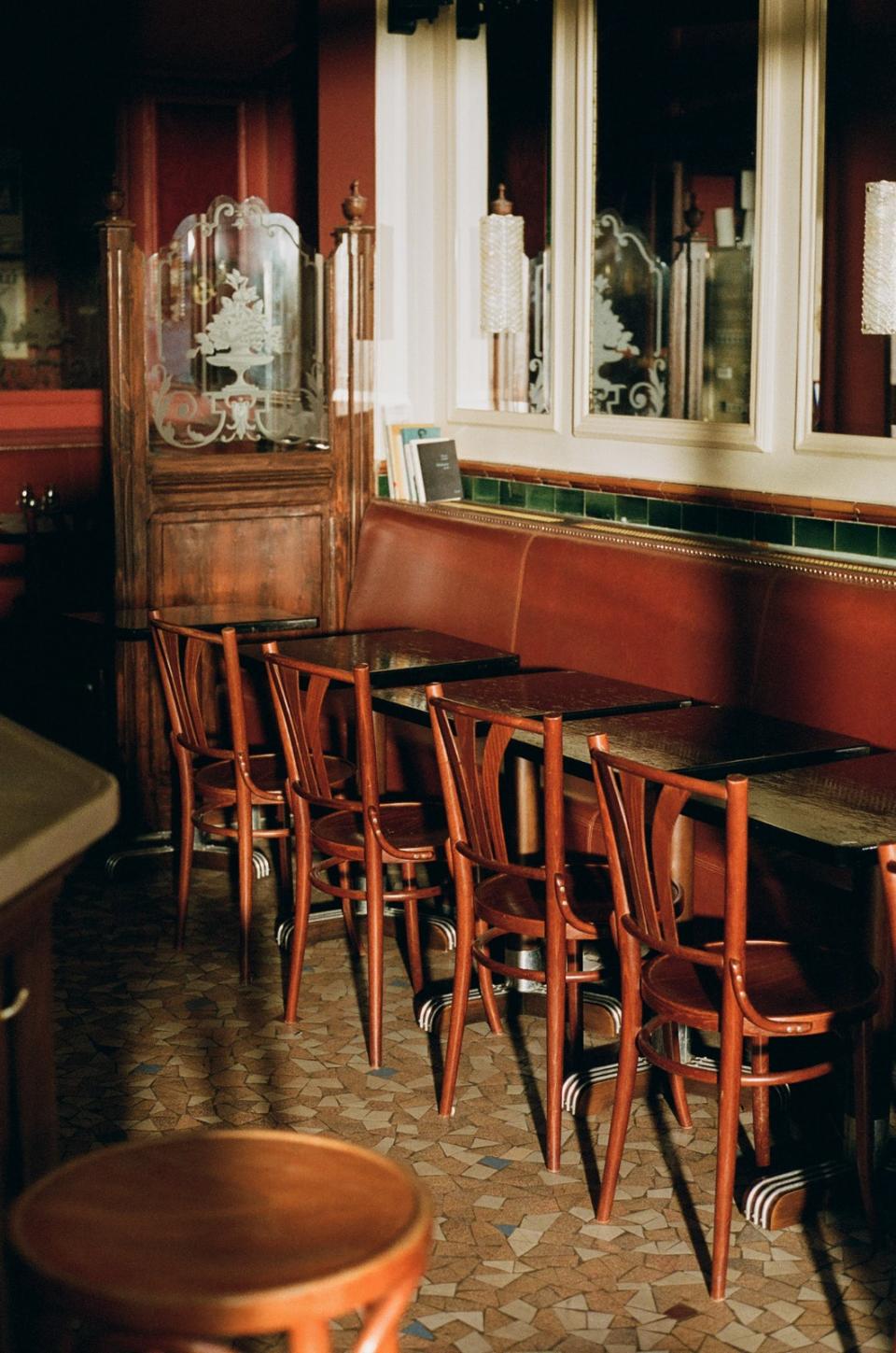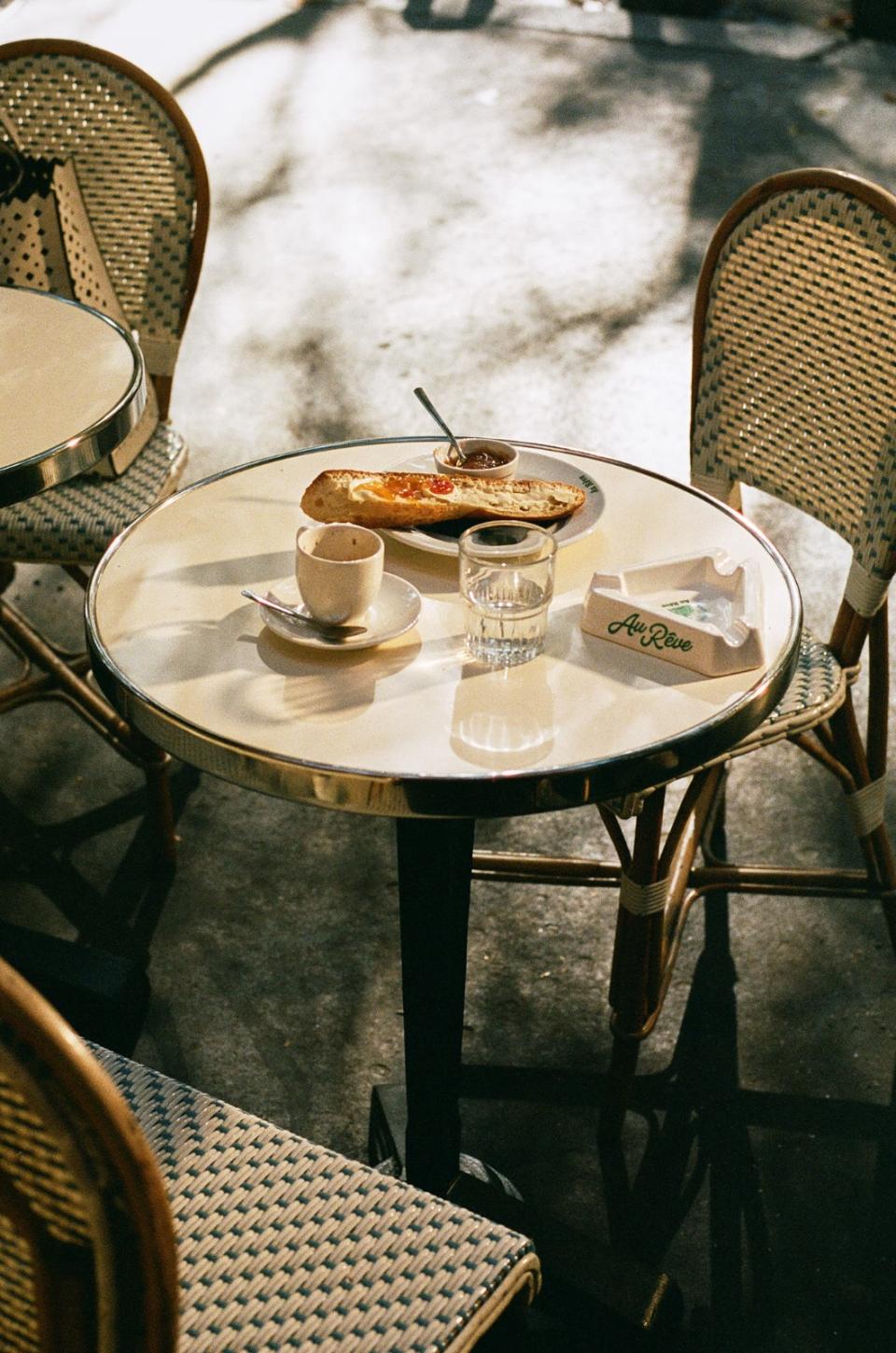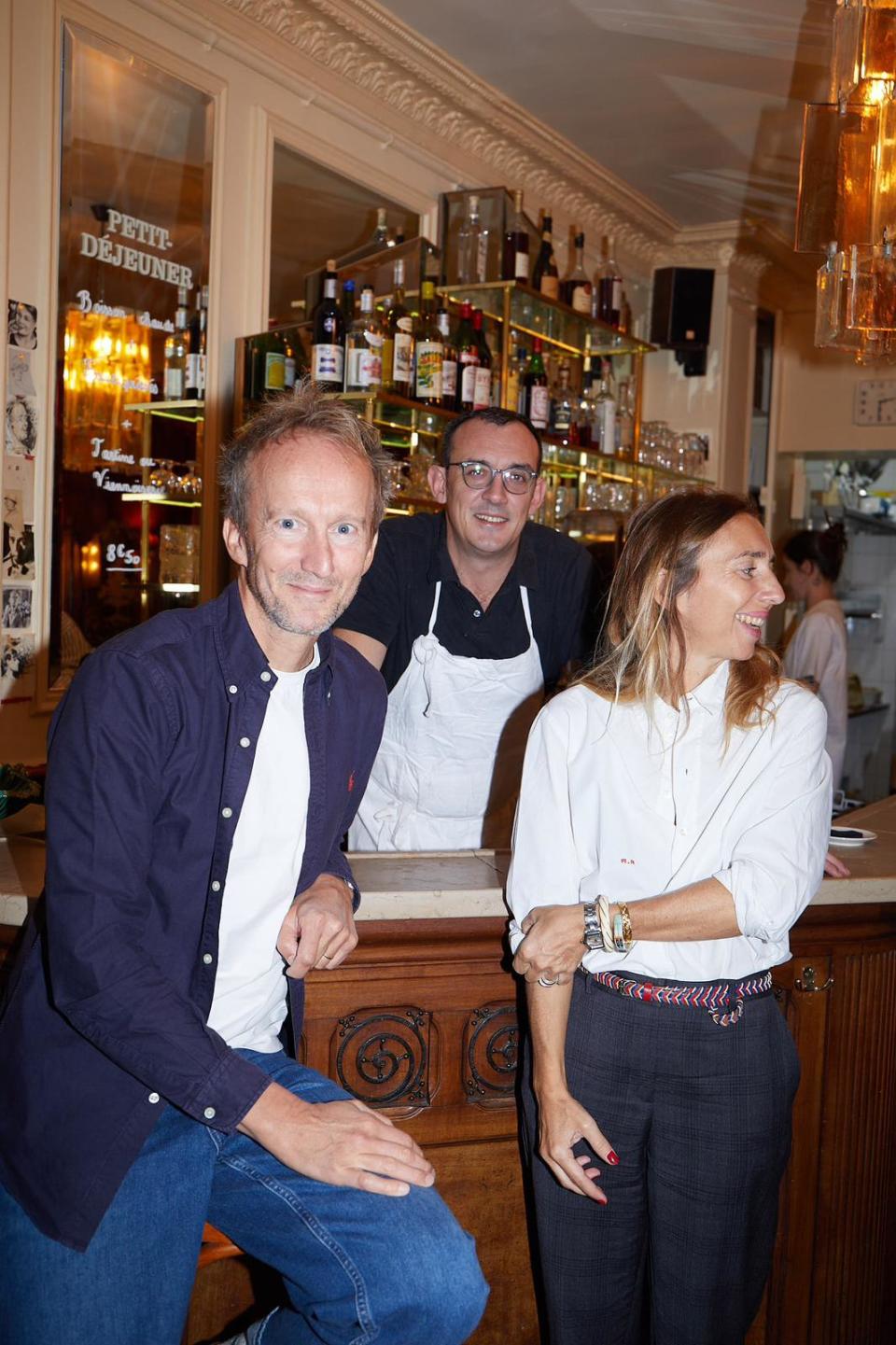In Montmartre, a Beloved Café Rises From the Ashes

PARIS — Au Rêve is the kind of Montmartre café that Instagram dreams are made of — but there’s not a fake flower in sight.
During the day, patrons perch on bistro chairs under its forest green awning, drinking black coffee and watching the world go by. At night, they huddle in the wood-paneled interior, sipping wine in the glow of vintage light fixtures reflected by mirror-lined walls.
More from WWD
A neighborhood institution, the place was once a hub for writers like Patrick Modiano and Georges Simenon. Legend has it that a lovesick Jacques Brel wrote the first lyrics of his famous song “Ne me quitte pas” at his favorite spot by the window.
For 50 years, Au Rêve was run by Elyette Ségard, who took it over at age 19 following the death of her parents. After several changes of ownership, and following a three-year closure, it has reopened under the auspices of Saint-Lazare, the creative studio founded by Antoine Ricardou and Clémentine Larroumet.
No strangers to the hospitality sector, the branding and architecture experts, who also have a New York office headed by Reynald Philippe, have worked on eateries including Michelin-starred chef Alexandre Vauthier’s restaurant Sur Mer, and hotels such as The Madrona in northern California and The Surf Club in Florida.

But this is the first time they have bought into a venue of their own. For Ricardou, who grew up nearby, it was vital to preserve the spirit of the area.
“We didn’t want this place that we love to become another real estate agency,” he says over a morning coffee amid the clatter of cups.
That’s why the renovation was handled with the utmost respect for the history of the locale. Its blue neon sign, carved wooden bar and cognac-colored banquette have all been restored to their former splendor. Brown paint was scraped off to reveal a previously hidden tile fresco.
“People walk in here and say, ‘But you haven’t done anything,’” says Ricardou. “They feel good and it feels like nothing has changed. For us, that’s the biggest compliment. It’s exactly what we hoped for.”
Having shaped brand identities for the likes of L’Artisan Parfumeur and Samaritaine Paris, Saint-Lazare branched out into homewares last year with the launch of A.S.L., a collection of furniture and objects, including a collaboration with Zara Home. Au Rêve is the first step toward its next venture.
“We’re calling it ‘Les paradis perdus.’ It’s about saving local treasures. We’re looking at a library next,” he explains.
It’s also a showcase for the studio’s “conservative” approach to design. “It’s great to use our expertise to preserve these locales, but also to show there’s an alternative to full design,” he says. “Everyone is always talking about the circular economy. The best example of circular economy is being able to reveal what’s already there, without having to redo everything.”

He cautions that the idea is not to transform Au Rêve into a museum. “It’s not backward-looking because the vision is modern,” he says. The café’s new graphic identity is splashed across coasters, ashtrays and plates, but there are no T-shirts on sale. “We’re not going to get on that bandwagon. Maybe in a year or two, there’ll be a collector’s item,” Ricardou demurs.
In the interest of continuity, the management of Au Rêve has been handed back to Mathieu Renucci, who briefly ran it after Ségard retired in 2008. His menu includes classics like deviled eggs, croque-monsieurs and charcuterie plates, alongside modern dishes and cocktails.
In the interim, the café had fallen into the hands of owners who did not find favor with its habitués. “Nobody wanted to come here anymore. It had lost its soul,” Ricardou recalls.
Ségard, now in her 80s, was there at the reopening and her picture hangs above the bar. “The fact that she comes for dinner with her friends is very touching,” he says.
A local legend, she has shared how she was underage when she took over the running of the bar with the blessing of local authorities and a mobster known as Petit Claude, who gave her protection without asking for anything in return. Over the years, patrons included carpenters and mechanics, editors from Pathé Cinema, journalists from Libération, comic strip artists and other locals.
Ricardou is keen to maintain that eclectic mix at the café, which is open from 8 a.m. until 2 a.m. Monday to Friday, with slightly shorter hours on the weekend. While tourists are welcome, the majority of customers are locals.
“There are layers of people: the cool musicians, the lawyers and the guys who come and have their coffee at the counter in the morning for 1.30 euros. And that is success,” he says. “It’s like this little beating heart.”

Best of WWD

